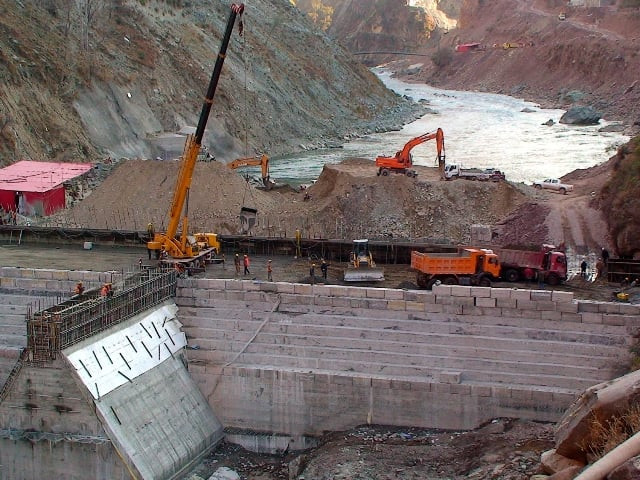Reconvening dialogue
Modi used the conflict as a diplomatic weapon, issued a statement, ‘water belonging to India cannot go to Pakistan’

Ecnec approved the 969-megawatt Neelum Jhelum Hydropower project as well as CPEC’s 118-kilometre long Havelian-Thakot and 392-km Sukkur-Multan section roads. photo: file
Islamabad fears these plants could severely deplete its water resources as they will be built on a tributary of the Jhelum and Chenab rivers, water flow from which has been allocated to Pakistan according to the treaty. If this happens it would result in a major setback for Pakistan as it is primarily a ‘water economy’ with 65 per cent of the population having agriculture as their only means of subsistence. With Pakistan already facing existential problems — an increasing water demand owing to the growing population, climate change and mismanagement of water for industrial and agricultural consumption — the construction of the projects would not only further strain its water resources but also lead to a food shortage.
Although the treaty has survived the test of time, last year, Indian premier Narendra Modi used the water conflict as a diplomatic weapon when tensions between the two nations were escalating. He issued a statement that said ‘water belonging to India cannot go to Pakistan’. However, it comes as welcome news that Pakistan and India displayed cooperation during recent talks hosted by the World Bank to resolve the pending issue with them agreeing to discuss it further in September. Over the years, neither the democratic nor the military leadership has been able to provide Pakistan with a formal water policy to resolve the increasing water shortage. Reconvening the dialogue on Indo-Pak water conflict could be a step in the right direction.
Published in The Express Tribune, August 4th, 2017.
Like Opinion & Editorial on Facebook, follow @ETOpEd on Twitter to receive all updates on all our daily pieces.
















COMMENTS
Comments are moderated and generally will be posted if they are on-topic and not abusive.
For more information, please see our Comments FAQ